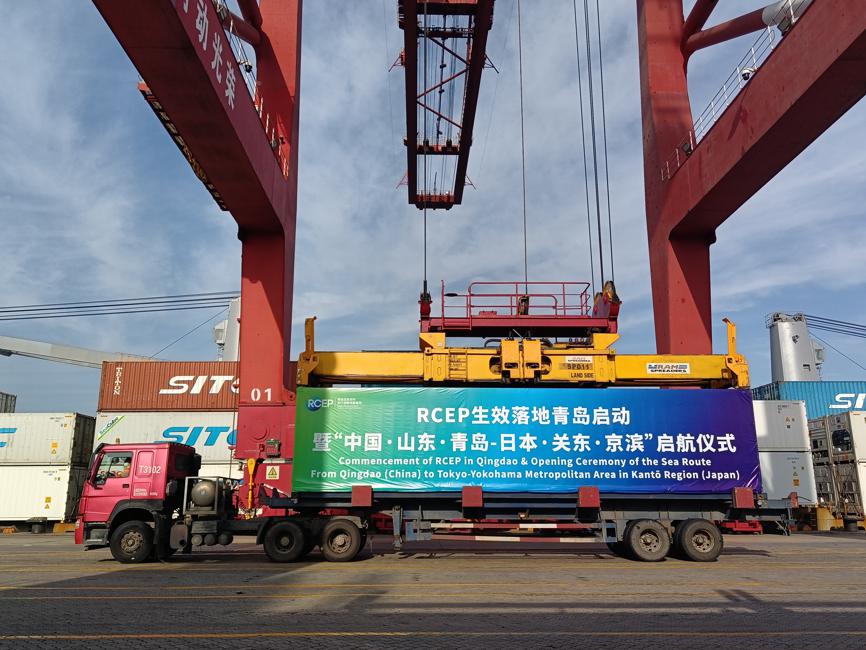RCEP takes effect; boon for Asia-Pacific


Chinese consumers are likely to buy more quality imported fruits and vegetables at good prices as the Regional Comprehensive Economic Partnership, or RCEP, took effect on Saturday, officials and experts said.
Shandong Port Group, the world's largest port conglomerate in terms of cargo capacity, "will be focusing on imported consumer goods such as cold chain products and building a premium shipping route cluster for imported consumer goods that covers RCEP members," said Li Fengli, the group's general manger.
"Domestic consumers, especially those from northern China, will have quicker access to imported fruit from countries such as Thailand and Vietnam," Li said at a ceremony marking RCEP's implementation in Qingdao, Shandong, on Saturday.
Li said RCEP member countries have 113 services calling at the port group, and the port operator is expected to have handled 4.6 million TEUs (twenty-foot equivalent units) of full containers from RCEP routes in 2021, up 11.6 percent year-on-year.

Nabhasporn Bhuttarichval, consul-general of the Thai consulate in Qingdao, said at least 30,000 exported commodities in Thailand will become tariff-free with the implementation of RCEP agreement.
"Perishable food products are expected to go through customs clearances in shorter times, bringing convenience to the import and export of fruits and vegetables for RCEP members," she said.
Chen Dehai, secretary-general of ASEAN-China Centre, said the implementation of the RCEP agreement, combined with the newly opened China-Laos Railway, will greatly promote agricultural trade between China and ASEAN countries, providing domestic consumers in China with imported fruit from ASEAN countries at reasonable prices.



































